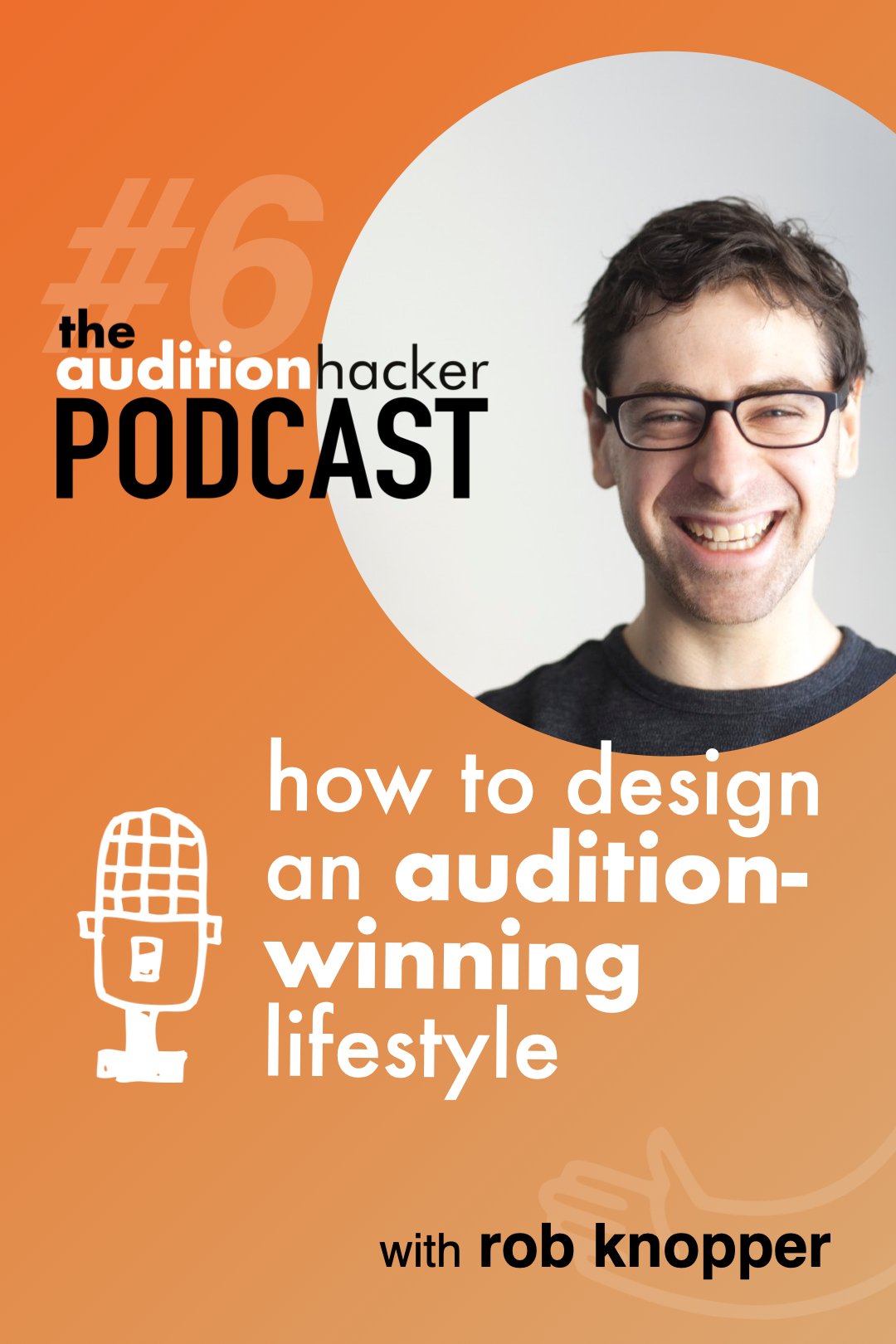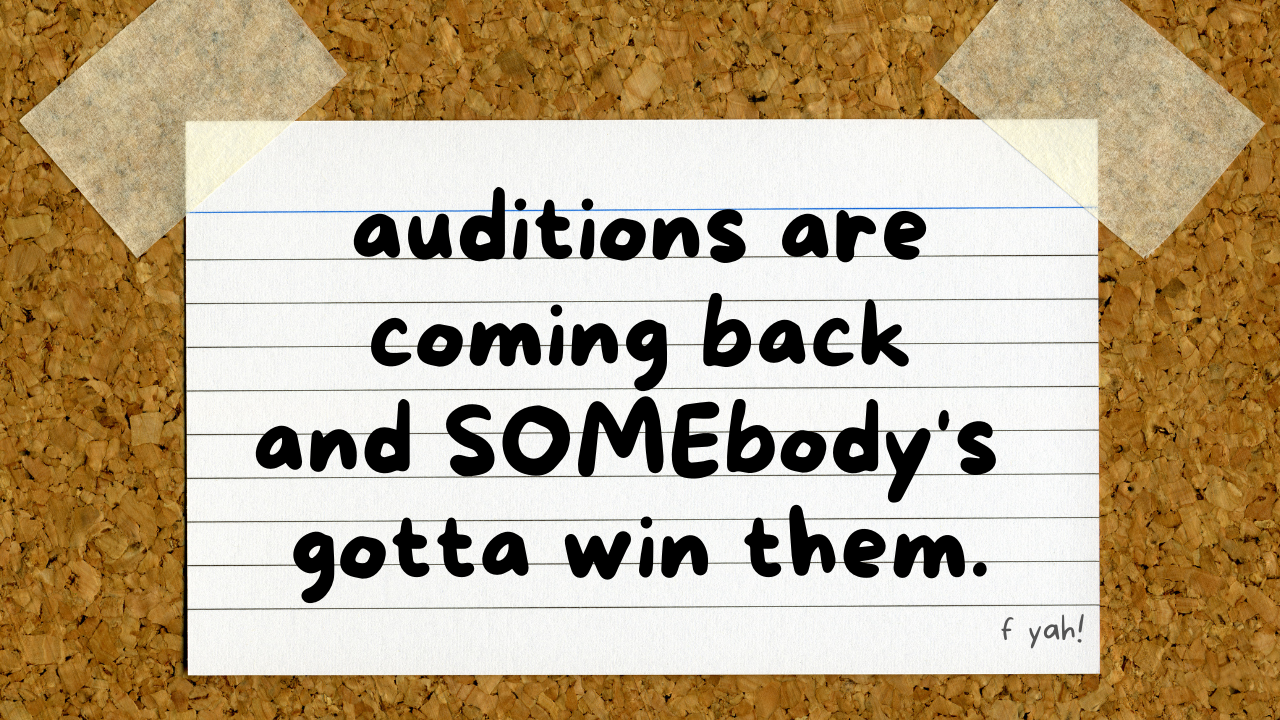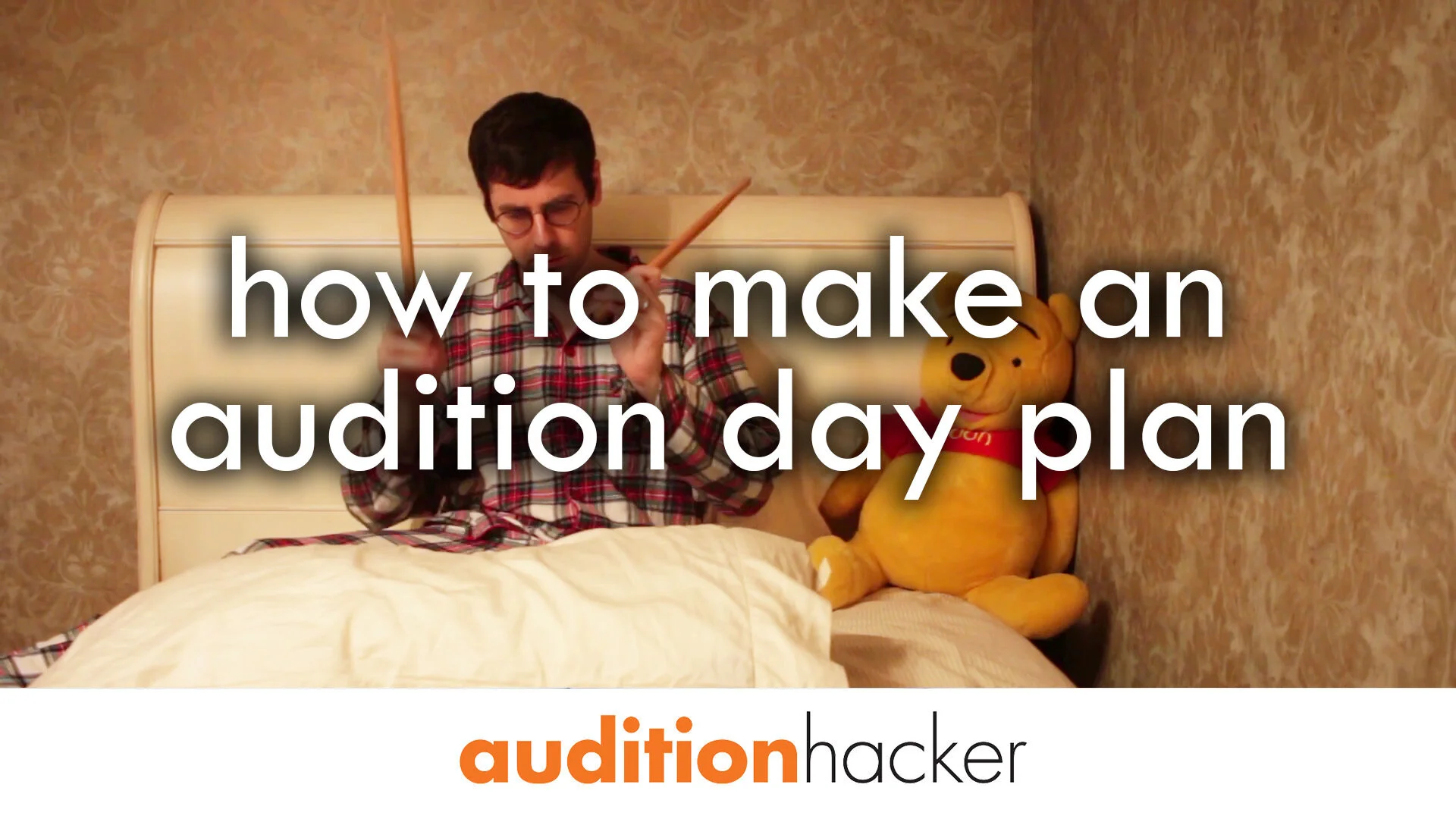what happens when you don’t have an audition day plan?
well, if you’re like me, you’ll sit in the warm-up room and start worrying and panicking and over-practicing. you’ll reconsider every musical decision you made…
…is this the right tempo or should i speed up a little?
…what if i play the wrong sticking at rehearsal #6?
…maybe i should change the sticking in measure 2?
once you start thinking about it, you can’t stop. you’ll second-guess everything.
and all that worrying leads to nerves. for me, it leads to shaking, sweaty hands, and shortness of breath.
so the way that i can encourage myself not to think too much and go down the rabbit hole of every musical decision is by making a detailed audition day plan. i plan out what to do during 4 periods of time:
1. the night before (in the hotel)
2. the morning of (at the hotel)
3. the group warm-up room, and
4. the private warm-up room
this is usually something people forget to do (and regret later).
this video is about how to make your audition day plan.
rob and noa’s summer audition bootcamp closes tomorrow night.
if you think creating an audition day plan is helpful, consider how creating an entire audition preparation plan could change your life.
this summer, i’m teaching an 8-week audition preparation course with noa kageyama from the bulletproof musician. we’ll go over every step of audition prep from the day you get your list to the day of the audition.
the course starts on may 4th, and you have until tomorrow night (sunday) at 11:59pm eastern to enroll.
it's episode #8 of the auditionhacker podcast, and i'll go over my best methods for getting better feedback.
it’s episode #7 of the auditionhacker podcast, and i’ll go over:
how i spent 6 months perfecting the 12 delécluse études,
the special strategy i used in preparation, called “the magical shrinking self-recording workflow”,
how preparation needs to be structured for a recording vs. a live audition, and
my best tips and strategies to make a recording session go smoothly.
it’s episode #6 of the auditionhacker podcast, and i’m going over:
the legendary and now-defunct practice of challenges,
adopting the olympian mindset as a musician, and
the most accurate indicator of future audition success.
i've worked with hundreds of musicians on audition preparation. and nothing - NOTHING - has been as effective and life-changing as when they start self-recording the right way.
imprecise rhythm is something that can get you cut from an audition IMMEDIATELY (regardless of your instrument). and great rhythm is something that an audition committee can sense, both consciously and subconsciously. hearing someone play in the pocket just feels good.
well, i have a few tricks up my sleeve to straighten out my rhythm, and today i'm sharing one of the most effective strategies.
in today's episode, i'll go over:
my audition journey and how i ended up winning the met opera job,
3 of my favorite audition hacks, and
the one thing that's so much more meaningful than the result of the audition.
things i do on audition day:
warm up by playing on the hotel pillow,
watch vast amounts of tv shows on my phone, and
never drink coffee.
when i was in detroit in february i got to interview three great DSO musicians on how they approach audition day. pretty fascinating to see how their approaches are so different from each other.










in 2019, a cellist named maria reached out to me about her audition struggles. on paper, she was the “worst audition candidate ever” (her words). she had 2 small children, a full-time teaching job, and hadn’t taken an audition in 4 years.